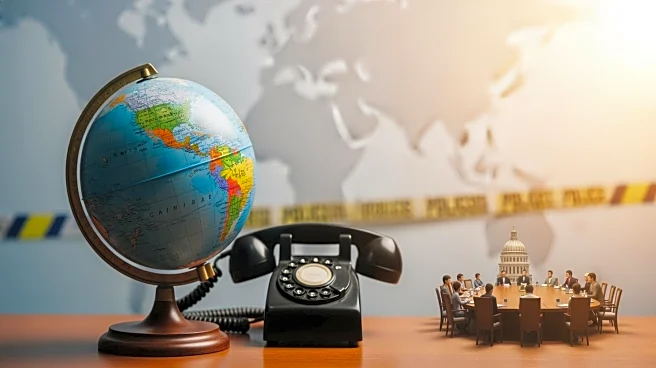What's Happening?
President Donald Trump is contemplating another meeting with North Korean leader Kim Jong Un, reflecting on the positive press from their previous summits. During a recent trip to Southeast Asia, Trump expressed
openness to a meeting with Kim, although it is not officially scheduled. The geopolitical context has shifted since their last meeting, with North Korea's position strengthened by closer ties with Russia and China. These developments have reduced North Korea's reliance on negotiations with the U.S., as Kim has leveraged global tensions to his advantage.
Why It's Important?
A potential meeting between President Trump and Kim Jong Un could have significant implications for U.S. foreign policy and regional stability in East Asia. Renewed dialogue might offer opportunities to address North Korea's nuclear ambitions, but the changing geopolitical dynamics complicate the prospects for meaningful agreements. North Korea's strengthened alliances with Russia and China could diminish its incentive to negotiate with the U.S., potentially leading to a stalemate. The situation underscores the complexities of international diplomacy and the challenges of managing relations with adversarial states.
What's Next?
If a meeting occurs, it could either pave the way for renewed diplomatic efforts or highlight the challenges of engaging with North Korea under the current geopolitical climate. The U.S. may need to reassess its strategy, considering North Korea's closer ties with Russia and China. The outcome of any discussions could influence future U.S. policy decisions and impact regional security dynamics.










